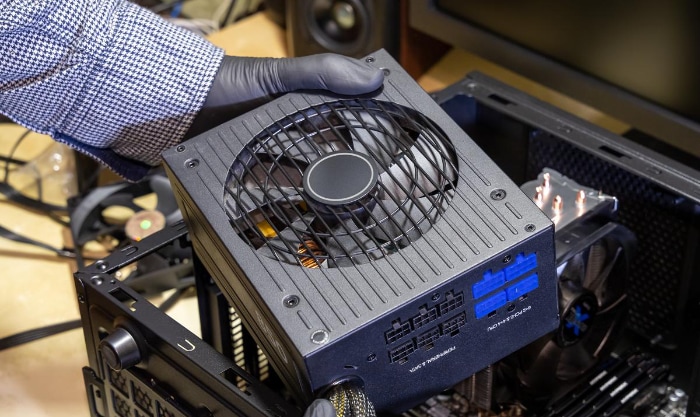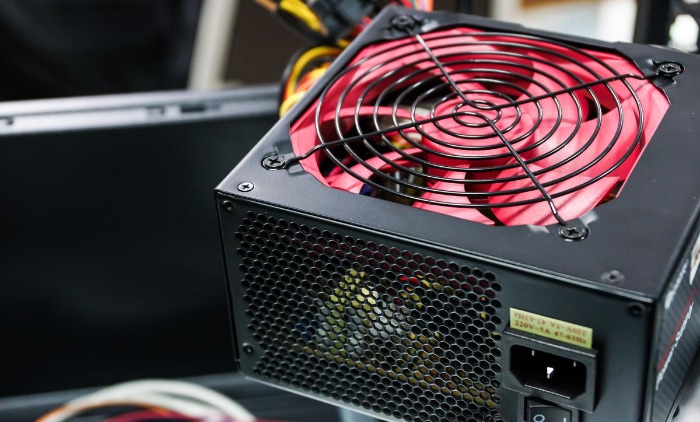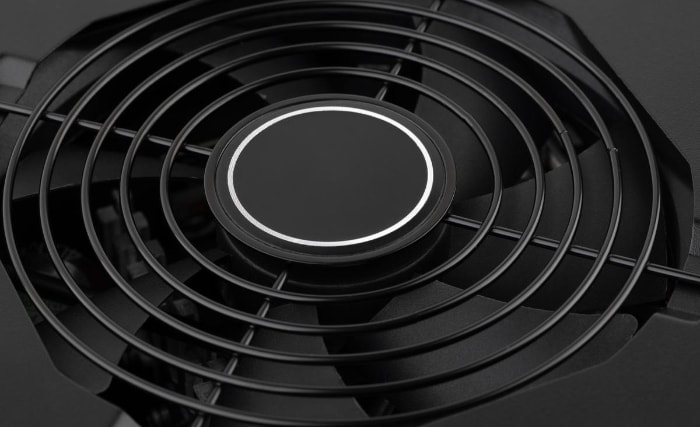Gold vs. Platinum: The PSU Efficiency Battle

Power Supply Units (PSUs) are the heart of a computer system, supplying vital energy to components and ensuring stable operation. Their role is often underappreciated, yet they greatly impact the longevity and performance of a computer.
As technology has advanced, so too has the focus on energy efficiency, leading to the creation of the 80 PLUS certification system. This system not only guarantees a certain level of energy efficiency in PSUs but also serves as a guiding metric for consumers seeking to balance performance with environmental and economic considerations.
With various certification levels available, such as Gold and Platinum, understanding the distinctions and benefits of each is crucial for making informed purchasing decisions.
The 80 PLUS Certification System
Power Supply Units are more than just boxes that power our devices. Their efficiency can affect our energy bills, system performance, and the environment.
The 80 PLUS Certification System emerged as a response to these concerns, offering a standardized way to measure and denote PSU efficiency.
Historical Context and Purpose
Established in 2004, the 80 PLUS Certification was an initiative to promote energy-efficient power supply units. The primary objective behind this certification was twofold: to reduce electrical waste by encouraging higher efficiency in PSUs and to provide consumers with a clear metric for assessing the energy efficiency of different PSU models.
Understanding the Efficiency Ratings
The 80 PLUS Certification System consists of various levels, each indicating a certain degree of efficiency. While there are several categories, from White to Titanium, we will touch on some of the most common:
- Bronze: This is the entry-level certification, indicating a basic level of efficiency which is still higher than many non-certified units.
- Silver: A step above Bronze, Silver-rated PSUs offer better efficiency, especially under medium loads.
- Gold: Representing a significant jump in efficiency, Gold-rated units are popular choices for both general consumers and enthusiasts alike.
- Platinum: Approaching the higher end of the spectrum, Platinum units are known for their exceptional efficiency, especially in high-performance setups.
- Titanium: The top tier of efficiency ratings, Titanium is reserved for the best of the best in terms of PSU efficiency.
Importance of the 80 PLUS Certification
By adhering to the standards set by the 80 PLUS Certification, manufacturers ensure that their PSUs are more energy-efficient, leading to potential energy savings for consumers. Moreover, efficient PSUs tend to generate less heat, which can lead to longer component lifespans and reduced cooling requirements.
Typical Use Cases and Target Markets
Different efficiency ratings cater to varied market needs. For instance:
- Bronze and Silver units are often sought by budget-conscious consumers.
- Gold units are well-suited for mainstream users and gaming enthusiasts looking for a balance between price and performance.
- Platinum and Titanium units are typically reserved for high-end systems, intensive workstations, and servers where efficiency can translate to notable energy savings over time.
Gold-rated PSUs
A balance of efficiency and affordability often leads consumers to Gold-rated Power Supply Units. Sitting comfortably in the mid-to-high range of the efficiency spectrum, these PSUs offer an attractive compromise for those wanting performance without excessive spending.
Let's explore the characteristics, benefits, and potential drawbacks of Gold-rated PSUs.
General Characteristics and Features
Gold-rated PSUs promise a minimum efficiency of 87% at 20% load, 90% at 50% load, and 87% at 100% load. These figures are reflective of the unit's ability to convert the power from the wall socket with minimal wastage. The higher the efficiency, the less excess heat is generated, and the less electricity is wasted.
Efficiency and Power Wastage
When discussing power wastage, it's essential to consider both the environmental impact and cost implications. Gold-rated PSUs, with their commendable efficiency levels, ensure that a significant portion of the power drawn from the wall is effectively used to run the computer components.
This efficiency translates to less wasted electricity, which can lead to reduced energy bills over time.
Typical Use Cases and Target Audience
Gold-rated units are versatile and cater to a broad audience:
- Mainstream Users: For those who use their computer for daily tasks, entertainment, and light gaming, a Gold-rated PSU offers more than sufficient efficiency.
- Gaming Enthusiasts: A gaming rig with moderate to high-end components can benefit from the reliability and efficiency of a Gold-rated unit.
- Professionals: Individuals who use their computers for graphic design, video editing, or other intensive tasks will find Gold-rated PSUs a worthy investment.
Pros and Cons of Gold-rated PSUs
Understanding the advantages and potential drawbacks of any product is crucial for informed decision-making.
Pros
- Affordability: Generally more cost-effective than Platinum or Titanium units.
- Widely Available: Due to their popularity, they are easy to find across multiple brands and models.
- Significant Efficiency: While not the highest, the efficiency is notably better than non-certified or lower-tier units.
Cons
- Not the Pinnacle of Efficiency: For systems that are continuously under heavy loads, a higher-rated PSU might offer more long-term benefits.
- Possible Overkill for Basic Systems: For very low-end or basic setups, the efficiency benefits might not be as noticeable.
Platinum-rated PSUs

Platinum-rated Power Supply Units stand out as a prime choice for enthusiasts and professionals seeking top-tier energy efficiency. These PSUs offer exceptional efficiency levels, particularly beneficial for high-performance systems and energy-conscious users.
Let's further examine Platinum-rated PSUs' intricacies, advantages, and potential limitations.
Key Characteristics and Features
Platinum-rated PSUs maintain an impressive efficiency of 90% at 20% load, 92% at 50% load, and 89% at 100% load. This high conversion efficiency means that a minimal amount of the power drawn from the wall is lost, making these units both environmentally friendly and cost-effective in the long run.
Efficiency and Its Implications
The hallmark of a Platinum-rated PSU is its stellar efficiency, which has both cost and environmental benefits:
- Energy Savings: The higher the efficiency, the lower the energy consumption. Over time, this can lead to noticeable savings on electricity bills, especially in regions with higher energy costs.
- Heat Reduction: High efficiency translates to less heat production. This can lead to an extended lifespan of the PSU and possibly other components due to reduced thermal stress.
Typical Use Cases and Preferred Audience
Platinum-rated units, given their high-end features, cater to specific segments of the market:
- High-Performance Setups: These PSUs offer the reliability and efficiency needed for gaming or professional rigs with top-of-the-line components.
- Workstations: Computers running resource-intensive tasks, such as 3D rendering or scientific simulations, can benefit from the consistent performance of a Platinum-rated PSU.
- Energy-Conscious Users: Those particularly concerned about their energy footprint or looking to minimize electricity costs will find these units appealing.
Pros and Cons of Platinum-rated PSUs
Every product comes with its set of advantages and potential shortcomings. Platinum-rated PSUs are no exception.
Pros
- Peak Efficiency: Among the top when it comes to efficiency, only surpassed by Titanium-rated units.
- Longevity: Often built with high-quality components, these PSUs tend to have a longer operational life.
- Cost Savings Over Time: The initial investment can be offset by the energy savings over the unit's lifespan.
Cons
- Higher Upfront Cost: The premium features come with a premium price tag.
- Potential Overinvestment: For mid-tier or budget systems, the benefits of such high efficiency might not be fully realized.
Cost Analysis
Choosing between Gold and Platinum-rated PSUs often boils down to a matter of cost. Both initial investment and long-term operational costs play significant roles in this decision.
This section aims to provide a detailed breakdown of the cost implications associated with these two popular PSU ratings.
Initial Cost Difference
When browsing the market for PSUs, it's evident that Platinum-rated units typically command a higher price tag compared to their Gold-rated counterparts. This price differential can be attributed to:
- Enhanced Efficiency: The components and design optimizations required to achieve Platinum efficiency standards are more advanced and, consequently, more expensive.
- Quality of Components: Platinum PSUs, given their premium positioning, often incorporate higher-grade components, which can drive up manufacturing costs.
Potential Long-Term Savings
While Platinum-rated units may be more expensive upfront, they can offer savings over time:
- Energy Bills: The increased efficiency means that less electricity is wasted, leading to lower electricity bills. Over the years, these savings can accumulate, especially for users with high-energy demands or those living in regions with high energy costs.
- Reduced Heat Output: By operating more efficiently and producing less heat, there's potentially less wear on components. This could translate to a longer lifespan, reducing the frequency of replacements.
Break-Even Point Analysis
To truly appreciate the cost savings of a Platinum-rated PSU, one should consider the break-even point – the moment when the accumulated energy savings offset the initial price difference compared to a Gold-rated unit. Factors influencing this break-even point include:
- System Load: A computer that’s frequently running at high loads will benefit more from a Platinum PSU's efficiency compared to one that’s occasionally used or running at low loads.
- Electricity Rates: Users in areas with high electricity rates will reach the break-even point sooner, as the efficiency gains translate to more substantial monetary savings.
- Operational Hours: A system that’s on and working for extended periods daily will see quicker returns on a Platinum PSU investment.
Other Financial Considerations
Aside from the direct costs and savings, it's also worth noting:
- Warranty Period: Often, higher-tier PSUs come with extended warranties, offering users peace of mind and potentially saving on replacement costs.
- Resale Value: Premium PSUs might retain their value better, so if a user decides to sell or upgrade, they could recoup a higher percentage of their initial investment.
Real-world Scenarios

Understanding the theoretical differences between Gold and Platinum-rated PSUs is just one piece of the puzzle. The true test lies in how they perform in actual, day-to-day situations.
By examining a variety of real-world scenarios, users can gain a clearer picture of how these PSUs might suit their individual needs and setups.
Home Gaming Setup
For many gamers, their PC is a prized possession, often subjected to extended hours of operation.
- Gold PSU: A user with a moderate gaming rig, perhaps running a few hours daily, will benefit from the efficiency a Gold-rated unit provides. The energy savings over non-certified or Bronze-rated units will be appreciable, but the difference between Gold and Platinum might not be as noticeable given the limited hours of operation.
- Platinum PSU: A gaming enthusiast with a high-end rig, perhaps running graphically intense games for many hours daily, will see more pronounced energy savings. The reduced heat output could also lead to a quieter system if the PSU fan doesn't have to work as hard.
Office Computers
In corporate environments, computers often run for extended periods, sometimes around the clock.
- Gold PSU: For standard office tasks like document processing, browsing, and email, a Gold-rated PSU provides more than adequate efficiency. Even with extended operational hours, the overall load is relatively low, making the difference between Gold and Platinum less significant.
- Platinum PSU: For workstations handling data analysis, video editing, or graphic design, a Platinum-rated PSU could offer tangible energy savings. Given the high computational tasks and longer operation hours, the extra efficiency begins to shine.
Server Environments
Servers typically run 24/7 and are crucial for businesses and online platforms.
- Gold PSU: For smaller businesses with limited server needs, a Gold-rated PSU can offer a balance of efficiency and cost. The continuous operation will still mean that the unit's efficiency is crucial, but the initial investment won't be as daunting as Platinum-rated units.
- Platinum PSU: In large data centers or for critical servers, every bit of efficiency counts. Platinum-rated PSUs can lead to significant energy savings, especially when scaled across multiple servers. Over time, this efficiency can lead to substantial cost reductions.
Casual Users and Basic Tasks
For users who simply browse the internet, stream content, or use word processors:
- Gold PSU: These users will find a Gold-rated PSU more than sufficient. The computer isn’t typically pushed to high loads, so the energy savings, while present, might not be as pronounced compared to higher-end setups.
- Platinum PSU: While a Platinum-rated unit will still provide the top-tier efficiency, the return on investment might be extended due to the lighter workload of such systems.
Conclusion
Selecting the right power supply unit for your needs is a delicate balance of cost, efficiency, and real-world application. Gold and Platinum-rated PSUs each have their distinct advantages, catering to different user profiles and demands.
Whether you're a casual browser, a gaming enthusiast, or managing a bustling data center, the choice boils down to immediate costs and long-term energy savings. A deep dive into efficiency standards, cost analysis, and practical scenarios shows that the best PSU is not just about the highest rating but about matching the unit's capabilities with your specific requirements.
Making an informed decision ensures optimal performance, longevity, and energy savings for your system.


